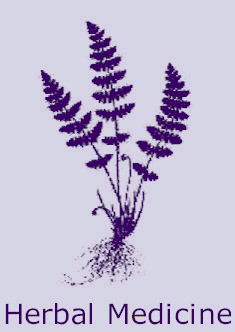
The origins of herbal medicine
The study of herbal medicine dates back more than 5000 years.
It was developed by the Sumerians who used their well-established
medicinal practices for many plants like laurel, caraway and thyme. The first known
Chinese herb book, released in 2700 B.C., lists over 360 medicinal plants and
their uses. Many early civilizations used herbal medicine as the first form of
healing power, including the
Egyptians of 1000 B.C., and the ancient Greeks
and Romans.
Safety with herbal medicine
Herbs have been used widely
around the world and can be very
helpful to the body, as long as they are used properly. Safety with any type of
herbal treatment is essential to one's overall health and well-being whether it is allopathic
or alternative in nature.
The most important thing to remember when dealing with herbs
is that they are medicinal and should be treated with the same care
we use when handling prescription drugs. Many herbs can be harmful in large
quantities or prolonged use and may become addictive. They should not
be used without the proper guidance of a health care professional.
Another important factor to remember is
that more is not better. Many people feel that if a little dose makes them feel better, then
more will make
them feel fabulous. Herbal doses should be controlled, as with any type of medicine.
Herbs are meant to work slowly with the body and its own
natural defenses. A person taking herbal medicines should maintain a healthy
diet and exercise to ensure that the overall effect of the herbs on the body is
positive.
If the herbs are not
working for an individual, then they may have a wrong combination of herbs, a wrong dosage, or
they are not adhering to a proper health regimen. When this occurs, consult a
health care professional for guidance as to what will work best for you.
Always tell your doctor what herbs you are taking.
Herbs are still medicine even
though most labels list all-natural ingredients. When mixed improperly with prescription
drugs, herbs can have an adverse effect on the body.
Herbal medicine is becoming more mainstream and many physicians are learning about
its benefits. The Springfield area has many herbal professionals, naturopathic
doctors, Chinese medicine practitioners, and other professionals that are trained
in the proper use of healing herbs.
Following these guidelines will help you
get the most from
your herbal treatments. Just remember to always treat your herbal medicines with
care and they will do the same for you.
back
to top
Herbal glossary
Alterative helps to restore normal health, cleanses and
purifies the blood, and gradually restores normal bodily functions
Analgesic relieves pain
Anathematic helps kill and get rid of parasites in the
body
Antibacterial destroys or stops the growth of
bacteria
Antibiotic destroys or stops the growth of microorganisms
in the body
Antifungal destroys or stops the growth of fungi, such as
athlete’s foot
Anti-inflammatory reduces or counteracts
inflammations
Antioxidant inhibits or prevents
oxidation
Antispasmodic relieves voluntary and involuntary muscle
spasms
Antitussive prevents or eliminates
coughing
Antiviral inhibits or eliminates a
virus
Aphrodisiac creates or enhances sexual
arousal
Aromatherapy relies on the aroma of healing plants to
stimulate healing, relaxation, mood alteration, and overall well-being
Asthenia is the loss of or lack of strength, usually
affecting the muscular system
Astringent firms organs and tissues as well as reduces
excretions
Bolus is an herbal suppository inserted in the vagina or
rectum
Calmative is the soothing action on the body’s
systems
Carcinogenic causes
cancer
Cardiac is
of or relating to the heart
Carminative relieves intestinal gas and accompanying
annoyances
Catarrh is the inflammation of the mucous membranes of
the nose and breathing
Cathartic is a strong, fast-acting
laxative
Cirrhosis is the loss of tissue function of an
organ
Decoction is an extract made by putting the parts of a
healing plant into water and bringing it to a boil, then cooled and strained for
medicinal use
Detoxicant eliminates
toxins
Diaphoretic increases
perspiration
Emollient protects and soothes the
skin
Essential oils are plant oils, usually highly scented,
extracted from healing plants for healing applications
Fomentation is a hot compress made by soaking a cloth
in a decoction or infusion, then applying it externally
Hemostatic stops the flow of
blood
Infusion is a medicine made by pouring boiling water
over an herb or adding an herb to boiling water, similar to a tea
Ophthalmic soothes and heals the
eyes
Poultice is a plaster applied externally, usually
hot
Prophylactic aids in warding off
diseases
Salve is the same as an
ointment
Tincture is a medication derived from the medicinal
agents in herbs being dissolved into alcohol
Tonic stimulates the overall body
systems
Vasodilator relaxes the blood
vessels
back
to top
This site was prepared as a collaborative
effort by Crystal Green, Tasha Smith, Carole Petty, and Joan Keiffer.
|